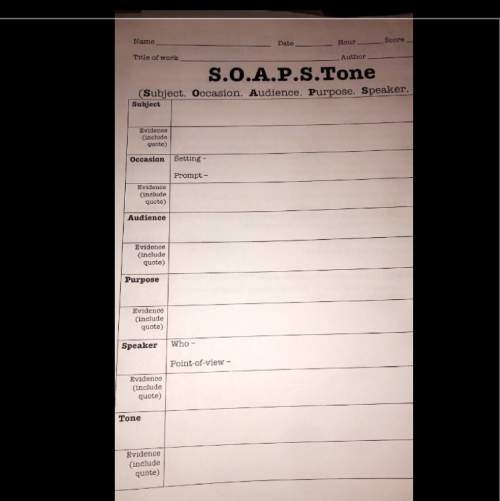
English, 22.09.2020 01:01 brendacauani12345
There never was a time when the world was without fire, but there was a time when men did not know how to kindle fire; and after they
learned how to kindle one, it was a long, long time before they learned how to kindle one easily. In these days we can kindle a fire without any
trouble, because we can easily get a match; but we must remember that the match is one of the most wonderful things in the world, and that it
took men thousands of years to learn how to make one. Let us learn the history of this familiar little object, the match.
Fire was first given to man by nature itself. When a forest is set on fire by cinders from a neighboring volcano, or when a tree is set ablaze by a
thunderbolt, we may say that nature strikes a match. In the early history of the world, nature had to kindle all the fires, for man by his own
effort was unable to produce a spark. The first method, then, of getting fire for use was to light sticks of wood at a flame kindled by nature-by
a volcano, perhaps, or by a stroke of lightning. These firebrands were carried to the home and used in kindling the fires there. The fire secured
in this way was carefully guarded and was kept burning as long as possible. But the flame, however faithfully watched, would sometimes be
extinguished. A sudden gust of wind or a sudden shower would put it out. Then a new firebrand would have to be secured, and this often
meant a long journey and a deal of trouble.
In 1827. John Walker, a druggist in a small English town, tipped a splint with sulphur, chlorate of potash, and sulphid of antimony, and rubbed it
on sandpaper, and it burst into flame. The druggist had discovered the first friction-chemical match the kind we use to-day. It is called friction
chemical because it is made by mixing certain chemicals together and rubbing them. Although Walker's match did not require the bottle of
acid, nevertheless it was not a good one. It could be lighted only by hard rubbing, and it sputtered and threw fire in all directions. In a few years.
however, phosphorus was substituted on the tip for antimony, and the change worked wonders. The match could now be lighted with very little
rubbing, and it was no longer necessary to have sandpaper upon which to rub it. It would ignite when rubbed on any dry surface, and there
was no longer any sputtering. This was the phosphorus match, the match with which we are so familiar.
What is the main idea of the last paragraph? (5 points)
Oa
Oь
O
Od
Early matches were dangerous and awkward.
John Walker made the first match,
Phosphorus was the key to the modern match.
Walker's match was better than what came before.

Answers: 3


Another question on English

English, 22.06.2019 02:00
Which character in this excerpt is in conflict with society, and why? joe summers is in conflict with society because he is joking with the villagers. old man warner is in conflict with society because he believes that young folks have crazy ideas. mrs. adams is in conflict with society because she says some villages have stopped holding lotteries. mr. adams is in conflict with society because he is standing with the villager who represents society's old ways.
Answers: 1

English, 22.06.2019 03:30
Used for an event that has been completed before the present moment in time. simple past past perfect perfect progressive past perfect progressive
Answers: 1

English, 22.06.2019 04:00
Which poems include the theme that memories of beautiful natural places benefit the people who recall them? "to spring" and "lines written in early spring" "to autumn" and "to a butterfly" "to summer" and "the human seasons" "i wandered lonely as a cloud" and "lines on a beautiful spring in a village"
Answers: 2

English, 22.06.2019 07:10
Ivansanger rainsfordgeneral zaroffwhitneyadventurous hunter; calm and composed; considers himself a realist; new yorker; veteran of world war ia hunter; sympathetic to the plight of voiceless, defenseless animals; cautiouscossack; mute; formidable physical stature; wears a black uniform; used to whip prisoners for the great white czarcossack; aristocrat; has sharp, pointed teeth and red lips; devoid of humanity and emotion
Answers: 3
You know the right answer?
There never was a time when the world was without fire, but there was a time when men did not know h...
Questions


Mathematics, 22.07.2021 19:00

Chemistry, 22.07.2021 19:00

Mathematics, 22.07.2021 19:00

Biology, 22.07.2021 19:00









Mathematics, 22.07.2021 19:10




Mathematics, 22.07.2021 19:10

Mathematics, 22.07.2021 19:10




